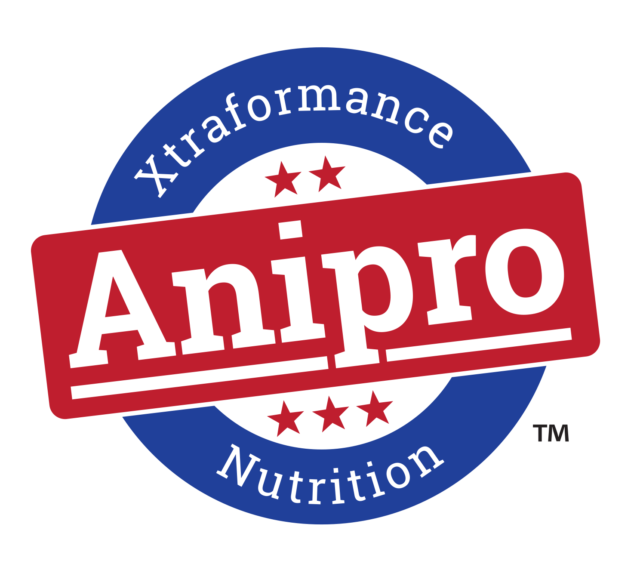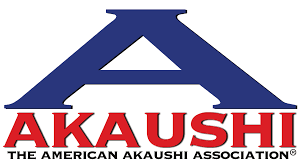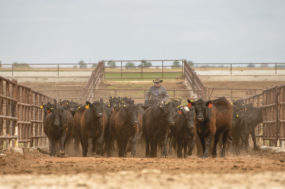Dan Thomson, the associate dean of outreach and Jones Professor of Production Medicine at the Kansas State University College of Veterinary Medicine and the Beef Cattle Institute’s founder and director, explains that healthy people refers to food safety, healthy cattle to animal health and well-being and healthy planet to environmental stewardship.
“Of course, our core is animal production because that’s what we do. But we surround it with these three other points.”
This interdisciplinary initiative includes teachers, researchers and subject specialists from several of K-State’s colleges, including the College of Agriculture, Veterinary Medicine, Business and Education.
The goal is to centralize education, research and outreach related to the beef business, Thomson says.
To build the BCI vision, Thomson, a third-generation bovine practitioner and an internationally recognized leader in beef cattle production and health management, drew on his experience from private practice in the cattle feeding business.
He explains, “I couldn’t ever solve any of the issues in the real world with just one profession or one group. We’d get around the table and we’d all have input and different angles to solve the situation by looking at the many different aspects of our business.”
The BCI was developed, he says, to “be more flexible and nimble in our ability as a university to better serve the industry that our stakeholders are in,” while putting the land-grant institution back into being a viable source of information.
The institute was initially grant-funded in August 2007 and has become a self-sustaining entity at the university through revenue generated for services provided and grants.
“I’m very proud of the fact that we’re able to stand on our own two feet,” Thomson shares. “In my opinion, we’re a small business – we’re trying to work hard to provide services that are relevant. If they’re relevant and the producer sees the value in what we’re doing, then we are sustainable.”
Animal welfare-centered
The BCI’s three-pronged approach doesn’t lose sight of the fact that today’s beef consumers are more aware than ever before about the quality and safety of the food products they purchase – and are also more concerned about the welfare and handling of animals.
In 2008, the first event presented by the BCI, as its kickoff, was the International Symposium on Beef Cattle Welfare. Hosted at K-State, Thomson says it was the first of its kind in the world.
“We saw the vision and pulled it together,” he comments. This event allowed all involved in the beef industry – from producer to veterinarian and feedyard manager, to transport specialist and processor – an opportunity to come together to discuss animal well-being issues.
A second symposium followed at K-State in 2010 and, in June 2012, the third was held in Saskatchewan. Thomson says the fourth animal welfare symposium will return to K-State in 2014.
The BCI also collaborates to host workshops, and travel isn’t limited to just within the state. “My favorite part is getting on the ground with producers and veterinarians, meeting and working with them,” Thomson admits. “We love to work with the different states.”
Thomson has presented in 60 of 105 Kansas counties, in 29 states and abroad. His presentations cover animal welfare and BQA, nutrition and also backgrounding and finishing cattle.
“DocTalk,” with Thomson as moderator, recently debuted on RFD-TV. He says this is another avenue to help amplify important issues related to livestock welfare and management (www.doctalktv.com; also see sidebar).
Training opportunities
The institute also offers undergraduate and graduate certificate programs for beef production, as well as workshops for producers and veterinarians to learn about advanced BQA training.
This includes the new BQA welfare assessment tools, animal husbandry best management practices and downed animal care and humane euthanasia training.
In fact, in cooperation with the Kansas Beef Council (KBC), the Beef Cattle Institute has used the BQA Feedyard Assessment (click here to view) to assess 90 percent of the fed cattle capacity in the state of Kansas, Thomson points out. “We just need to amplify this,” he says, in order to help move animal welfare forward through the beef industry.
On the cutting edge of industry information, education and outreach, the BCI, also in partnership with KBC, graduated the nation’s first class of Masters of Beef Advocacy program participants in 2009 (click here).
And in 2010, it launched the online English/Spanish BQA training program for people working within the industry. Since then, “we’ve now trained nearly 10,000 producers,” Thomson says.
The online BQA training is part of the Animal Care Training (ACT) program (click here to view), a training site for beef, dairy, equine, transportation, livestock marketers and a center for online continuing education for the American Association of Bovine Practitioners (AABP).
The ACT website has been named by NCBA as the national training center for beef and dairy producers and is managed by the BCI.
“The goal of the Animal Care Training program is to use modern technology to reach rural areas and provide up-to-date continuing education for all people involved with raising beef and dairy cattle to improve animal welfare, food safety and environmental stewardship,” Thomson said.
Recently launched this year are free online BQA training modules for youth through high-school age (see sidebar).
“What we’re trying to do is take it to the next level and really elevate their game because the more I’m around young people, the more impressed I am,” Thomson says.
Since April, “we’ve had 400 youth from many different states participate,” he informs. The youth training section also offers dairy animal care and quality assurance and humane equine management modules.
He says the BCI plans to bring on more online training that will lead to completion certificates, as it’s his belief that “we all need to be on board and working for our stakeholders every day.” ![]()
Youth Beef Quality Assurance training modules now available online
Beef industry youth have the opportunity to become certified in Beef Quality Assurance (BQA) online at no cost. The Beef Cattle Institute at Kansas State University has recently launched a Youth Animal Care Training program.
The BQA program teaches participants about implementing best management practices to help enhance herd profitability and improve consumer confidence in high-quality beef products.
With increased public attention on animal welfare, BQA enables youth and producers to demonstrate their commitment to food safety and quality.
The program features free online educational training modules for youth through high-school age. By participating in the training, youth can improve their knowledge of animal handling, animal welfare, antimicrobial residue avoidance and food safety.
After a training package is completed, a certificate is available for printing. Through the support of Beef Cattle Institute sponsors, the training packages, certification and electronic record of training are offered to youth at no cost.
“Animal handling, welfare and disease prevention and control are very important management concepts to anyone who raises beef cattle,” said Dan Thomson, assistant dean of outreach for K-State’s College of Veterinary Medicine. “As we move forward, it’s essential to teach our industry youth these practices early on so they become more routine and instinctive.”
Youth can work through the multimedia training modules at any time. Once all the modules within a package are completed and the quizzes are passed with 80 percent accuracy or higher, a certificate is available. There is no time limit or deadline to complete the modules and quizzes.
The program is designed to provide valuable online training in various areas of animal care. Each package is different in the length of time it takes to complete all of the modules. However, each module ranges from five to 20 minutes long.
The current training packages are
- Youth Beef Quality Assurance (28 modules)
- Youth Dairy Animal Care and Quality Assurance (31 modules)
Youth need to re-certify every three years to keep their certificate for Beef Quality Assurance up to date. The system will send an email a month before the certification is up as a reminder to re-certify.
“Youth are not tomorrow’s leaders; they’re today’s leaders. We must provide them with the tools to help them learn and move the industry forward,” Thomson said.
For more information, go to Youth Animal Care Training,
Thomson Hosts ‘DocTalk’ on RFD-TV
Dan Thomson, the Jones professor of production medicine and epidemiology and director of the Beef Cattle Institute in Kansas State University’s College of Veterinary Medicine, is the host of “DocTalk with Dr. Dan Thomson” on cable television’s RFD-TV.
The weekly program airs Mondays at 3:30 p.m., with second airings of the show at 1:30 a.m. on Tuesdays.
Each week Thomson and his guests discuss important issues related to livestock welfare and management, including current animal agriculture research, ways to keep the food supply safe and companion animal health issues.
Guests include nationally and internationally known veterinarians and animal scientists who conduct clinical research on ways to improve the health and well-being of all kinds of animals.
Topics for “DocTalk” programs include trichomoniasis in cattle, first aid for horses, choosing a companion animal, food safety issues like E. coli in beef cattle, carbon footprinting misconceptions related to the beef industry, how dairy producers keep the nation’s milk supply safe, equine dentistry and more.
RFD-TV is the nation’s first 24-hour television network dedicated to the needs and interests of rural America. According to RFD-TV, its broadcasts reach 63 percent of all farmers and ranchers in the nation, making it the No. 1 cable network for farmer and rancher viewership. Click here for a “DocTalk” schedule.
PHOTO
KSU’s Beef Cattle Institute offers undergraduate and graduate certificate programs for beef production and BQA training workshops for producers and veterinarians. Photo courtesy of KSU Beef Cattle Institute.







